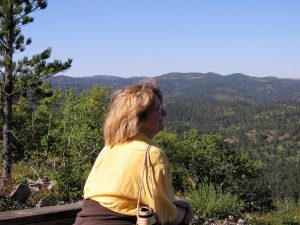 Ruth 1:19-22
Ruth 1:19-22
I’m not sure if Bible believing churches down south still do this, but years ago they used to have an annual “homecoming” service. Usually there would be special music, a guest preacher, and of course, “dinner on the grounds”. You can be sure that the dinner would feature fried chicken, baked beans, corn bread, and sweet tea. Since back in those days I was a “preacher boy”, I can attest to the always present chicken. I heard of one rather rotund Southern preacher who said as he pointed to his belt, “You know what this is? It’s a fence around a chicken cemetery!” Anyway, a homecoming service was a happy time, though I can’t actually remember anyone coming home for the homecoming in the church I served, since it was a relatively new church. But every church had to have one.
Our text speaks of a homecoming, and in the culture of that time, it was an unexpected homecoming. We live in such a mobile age, in which we have friends and family scattered around the country and the world, that it is very difficult to comprehend how very hard it was for people to move in that time. When people moved away, you expected your goodbye was permanent. So then, for Naomi to return to Bethlehem was a startling event. But this text speaks of more than one woman’s homecoming.
When Ruth and Naomi arrived in Bethlehem (1:19), it seemed that the men were out in the fields and the women working in town. You can picture the scene. One woman caught a glimpse of Naomi walking into town, and hurried out for a better look, with her daughters close behind. (There was no daytime TV in those days!) She saw her forgotten friend and told her oldest daughter, “Sarah, run over and tell Martha and Hannah that I think Naomi has come home!” As the word spreads, a crowd of women gather to see and to greet Naomi. It was a happy time of year, and they were so happy to see her! “Naomi, is that you? Welcome home! But… where are Elimelech, Mahlon and Kilion?” And one woman said to a friend in the growing crowd, “I bet she has some story to tell. Who needs a daytime soap opera when you have reality TV in our little town of Bethlehem?” You can see the women looking at her clothes, her face etched with grief and bitterness, and her hair sprinkled with gray hairs. They can sense that amid their joy, a long-lost friend has returned in great sorrow. Off to the side stands a young Moabite woman, for the moment ignored and unwelcomed. (Please remember that they lived under the law covenant, and Ruth was a despised Gentile and, even worse, she was from Moab.)
God has made us social creatures, to be part of a community. Being part of a community is an important part of what we are. Tragically, Americans have lost what this means, and millions are suffering the emotional and psychological consequences of the loss of community. The church is Christ’s new community in his better covenant, and each one of us needs to welcome people into our spiritual community. Reach out to strangers and welcome them cheerfully. Your welcome might be their doorway to faith in Jesus.
It is good for women to act like women and to socialize like women—very interested in personal matters! Yet a woman should be godly as well as feminine. So watch out for the temptation to spread malicious or salacious gossip. Instead, look for opportunities to spread the joy and peace of the Lord in your conversations. You know that another woman has the need to be listened to. How can you listen and provide godly hope and comfort? Remember that Christ has selected you as a female ambassador for the sake of his name.
Chapter one of Ruth opened with a famine beginning; it closes with a harvest beginning. So, this was a joyous time in Bethlehem. They were able to see God’s blessing in their fields. God had come back to bless his people! And now the women see a dear friend come back, as if from the dead.
As Christ’s believing community, we need to welcome people home to the Lord. It matters not where they have lived in the world under the cruel oppression of the evil one. And Satan is a cruel destroyer of humanity! We say, “Come in! Make yourself at home! Rejoice with us, because the Father’s grace in Christ is overflowing!
Grace and peace, David
